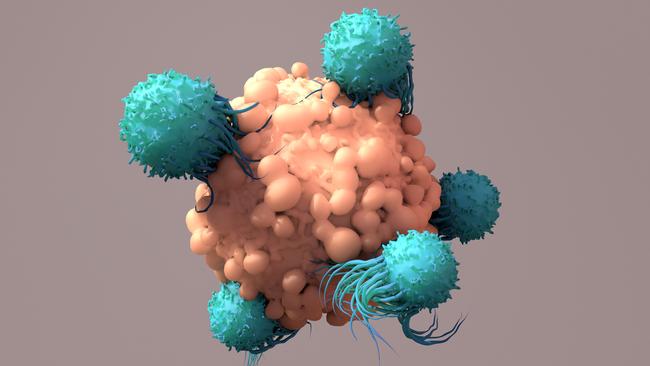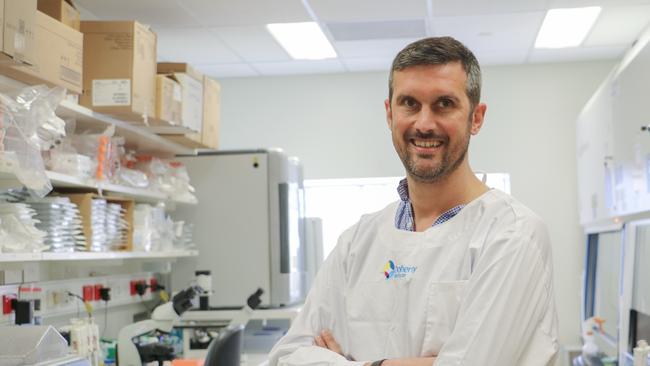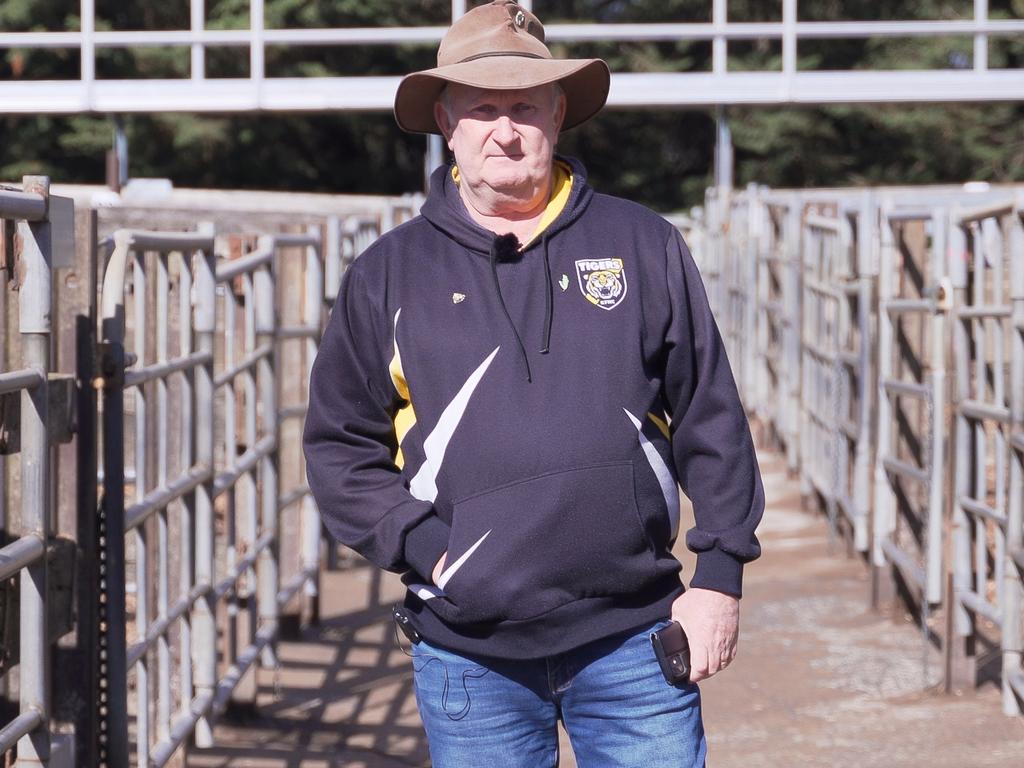Is a new medical discovery a key breakthrough in future cancer treatments?
Scientists have discovered a new type of cell in the body that has a ‘super power’ that can help in the fight against cancer.

Scientists have identified the immune system’s “secret power”, a unique form of T-cells in the body that hold the key to fighting cancer and other chronic illnesses.
Better still, they believe the production of those cells can be boosted, heralding a potentially significant breakthrough in cancer treatment.
Researchers at the Peter Doherty Institute for Infection and Immunity and the Peter MacCallum Cancer Centre, who published their findings in Science Immunology, say the findings offer a road map to better treatment of prolonged illnesses.
Doherty Institute laboratory head Daniel Utzschneider said the discovery could lead to advancements in immunotherapy treatments and the improvement of vaccines that attempt to provide long-lasting protection.
“Exhausted immune cells remain one of the biggest challenges in treating chronic diseases,” Dr Utzschneider said.
“This research provides a road map for how we might reinvigorate the immune system to improve health outcomes for people living with cancer or chronic infections like HIV or hepatitis B and C, thanks to these stem-like T-cells, the immune system’s secret power.”

Regular T-cells defend the body against cancer and chronic infections, but prolonged illnesses can leave the immune system exhausted, and result in the T-cells not functioning effectively.
The researchers found a rare type of immune cell, called stem-like T-cells, which are driven by a protein called ID3.
These ID3-expressing T-cells have a unique ability to self-renew and delay the onset of exhaustion, the research found, allowing them to sustain immune responses far longer than other T-cells.
Just as promising was the finding that there were ways the body could be encouraged to increase the number of these stem-like T-cells.
“We discovered that ID3+ T-cell formation could be promoted by specific inflammatory cues, potentially offering new strategies to boost the number of immune cells that excel at fighting cancer in patients,” said Ricky Johnstone, executive director of cancer research at the Peter MacCallum Cancer Centre.
“This could lead to better treatments for cancer patients and improve clinical immunotherapy outcomes,” Professor Johnstone said.
Dr Utzschneider said that while current cancer therapies involved patients receiving engineered cells to target or kill cancer, they became less effective over time.
“The cells in current therapies are like a sprinter; they go in, do their job, but they run out of steam,” he said.
“What we’ve identified, we believe, is a way to train these cells to become like a marathon runner, because in the fight against cancer the ability to go the distance is required.”





To join the conversation, please log in. Don't have an account? Register
Join the conversation, you are commenting as Logout